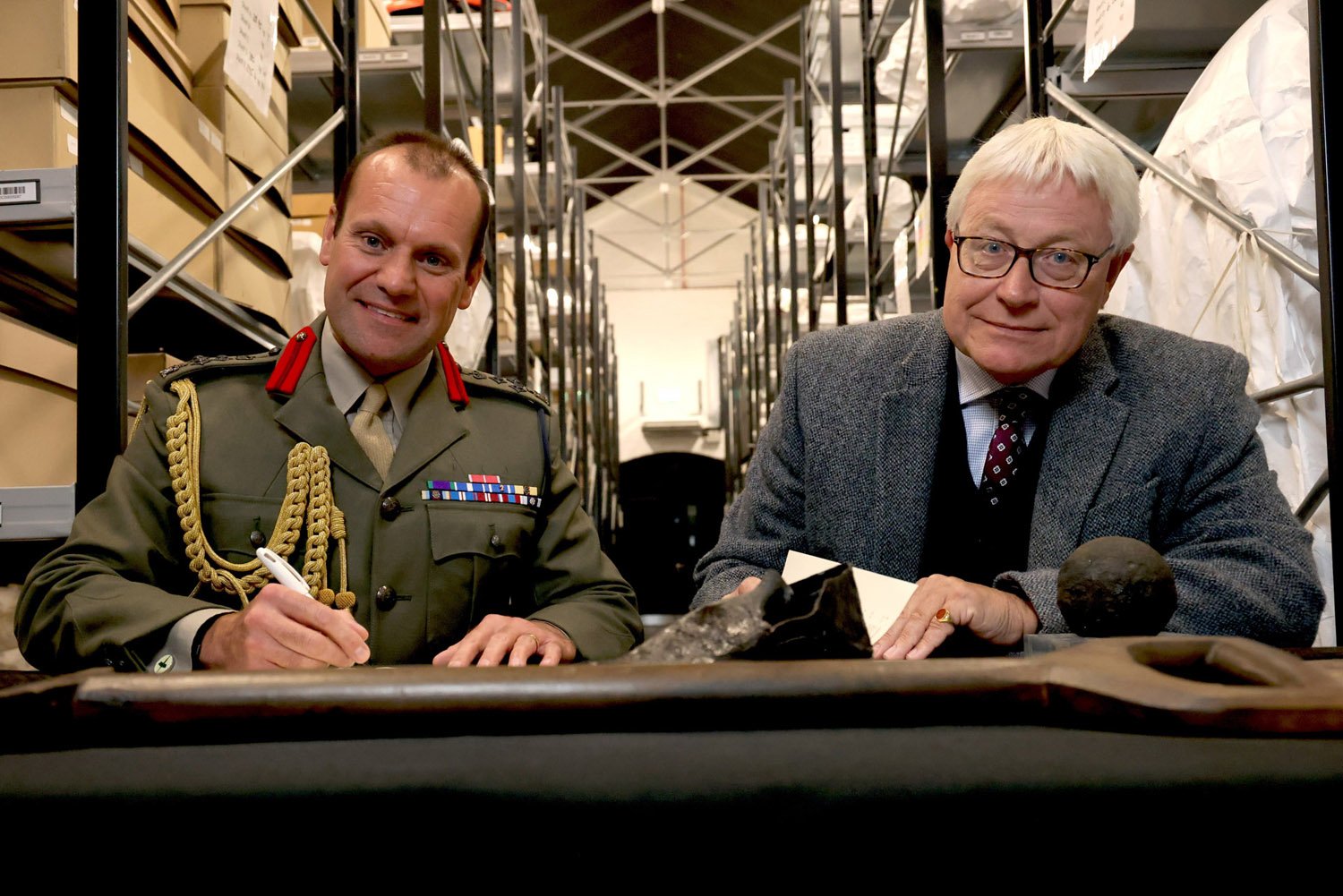More than 8,000 artefacts which give a unique insight into the Royal Navy just before Nelson joined have been donated to a national museum to preserve and display for the nation.
The Royal Navy formally transferred ownership of objects recovered from the 18th Century wreck of HMS Invincible in the Solent to expert historians.
The ship foundered after running into a sandbank off Eastney in eastern Portsmouth in 1758, her wreck gradually forgotten until fisherman Arthur Mack snagged his nets on something in 1979.
Some items were excavated for Chatham Historic Dockyard in the 1980s but the bulk of the recovery effort has been carried out over the past few years, thanks in part to more than £2m of National Lottery/LIBOR funding.
That has allowed the Maritime Archaeology Sea Trust (MAST), The National Museum of the Royal Navy and Bournemouth University to archaeologically excavate, record, conserve and display the remains of Invincible.
A wide variety of items have been raised from the wreck site: sections of the ship herself, including Invincible’s rudder, tobacco pipes, hair curlers, shoes, plates, tankards. Much like the Mary Rose, the wreck became a time capsule – only 200 years newer than Henry VIII’s flagship.
Even after the passage of more than a quarter of a millennium since she sank, the shipwreck and her objects remained the property of the Crown… until now.
The Royal Navy has decided to gift all of the items to the National Museum of the Royal Navy, which is better placed to preserve, curate and display the ship’s many treasures than today’s Fleet focused on the defense of the United Kingdom.
Built for the French Navy in 1744 and captured by the British three years later. Not only was the 74-gun man of war pressed into service with the Royal Navy, but her design served as the blueprint for major British warships which followed (including Nelson’s flagship HMS Victory, laid down the year after Invincible was lost.)
Some of the finest objects recovered are currently on loan to the National Museum of the Royal Navy and are being displayed at Chatham Historic Dockyard.
Many more are preserved in the archive in Portsmouth, where they were shown to Brigadier Jock Fraser RM, the Royal Navy’s Deputy Director Heritage, as he signed the ‘deed of gift’, the document transferring ownership.
“HMS Invincible and her artefacts fill a ‘missing link’ in naval history between the 16th and 18th Centuries,” he said.
“The unique collection allows visitors to the travelling exhibition in Chatham – and other locations – to learn about this fascinating chapter in our naval history.
“It was a real privilege to be able to observe some of the artefacts under preservation by the museum staff so they can join the remainder of the collection once this highly-skilled work is complete. The Royal Navy is proud to work with the National Museum of the Royal Navy to ensure that our naval maritime heritage is preserved for future generations”.
Dominic Tweddle, Director General of the National Museum, said the transfer of the Invincible artefacts was “a special day”.
He continued: “The handover concludes a remarkable project, Diving Deep, over three dive seasons to excavate, recover, conserve and publicly display material from the wreck.
“Diving Deep has stirred public interest, inspired a brilliant exhibition which we hope to transfer to our site in Hartlepool next year after its successful run in Portsmouth and at our partner’s site in Chatham Dockyard, created digital assets and highlighted how the Royal Navy’s heritage underwater can be as important in telling its story in shaping both our nation and the modern world.”

